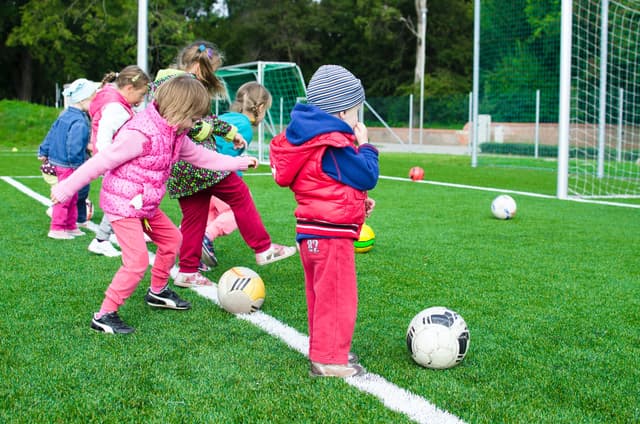Sleepy Lambs : advice from a Sleep Consultant
Sleep (or lack of it) is one the hottest topics with parents of babies and young children. We spoke to Cara, an Infant Sleep Coach for her top tips! Find out all about the role of a sleep consultant and Cara's advice on how to overcome the top 3 sleep challenges she gets asked about.
About Cara

I’m Cara, a gentle sleep consultant based in Hampshire and Surrey. I work with children from 0-7 years old but specialise in baby's under 12 months old. I work virtually and have clients from all over the UK and Australia every now and then! Unlike a lot of consultants, my support options include daily app support which is very unique to my practise. You get your own sleep expert in your pocket! My approach to sleep is always gentle and bespoke. There is no one size fits all approach to baby's and I will spend a lot of time investigating your baby's sleep challenge and only offer methods that suit your parenting style.
Sleep Challenge 1: The baby that only naps for 40 minutes at a time.
Up until 6 months old, short frequent naps are actually really normal. The baby who sleeps for 2 hours over lunch time at 2 months old is a rarity, but, if you have one of these in your baby group, you will probably be sat there feeling quite deflated because your baby only takes 30-40 minute naps.
At around 6 months old, your baby will start to consolidate her naps. This means that they will become more consistent in their timing and they may start to become longer naturally.
How to work on naps:
Wake windows: I would always recommend you have an idea of your baby’s wake windows (the time they can be awake before they need a sleep). Write them down and aim to have your baby down for their first nap of the day 5-10 minutes before the wake window is due to finish. It is always better to go by your own baby’s wake window than what the book says.
Work on the first nap of the day before you work on the others. Baby’s are more rested at this time which helps with sleep. It is much harder to put an overtired baby down for a nap than a rested one.
Pause: When your baby wakes from their nap after 40 minutes or so, don’t rush into them. Allow time to pause and really listen to what they are saying. When we rush in immediately, we miss the opportunity to see if they will go back to sleep. It is very common for babies to cry, moan, shout or whinge when they are going from one sleep cycle to the other. If after a few minutes they are showing no sign of going back to sleep, get them up!

Sleep Challenge 2: The baby that takes ages to fall asleep at bedtime.
Baby’s going to bed at the right time will take between 5-25 minutes to fall asleep. If they are falling asleep on their bottle or very quickly, they may need an earlier bedtime. The baby that takes ages could either not be tired enough or overtired.
How to work on bedtime:
How long is your baby’s last wake window of the day? Are they waking at 5pm and you are putting them to bed at 6.30/7pm? Baby’s need to build up adenosine before they go to bed, this is their “sleep pressure”. If they are napping too close to bedtime, they won’t be ready to go to bed and it will take longer for them to fall asleep. Equally, if their last nap was at 11am, they probably need an earlier bedtime than 7pm because they will be extremely overtired.
How is your baby falling asleep? If you are aiding your baby, this is fine until it starts taking longer or you notice the feeding, rocking, walking, ssshing isn’t working anymore. Baby’s all get to a point where they are ready to self settle themselves. It is usually around 5 to 6 months old. By trying to pop your baby down drowsy but awake they can start practising the art of falling asleep independently. If it doesn’t work, just go back to getting them to sleep how you were doing so before. Practise makes perfect and your baby may just surprise you and fall asleep without any help one day!

Sleep Challenge 3: The baby who wakes frequently at night.
With frequent night wakings, we start by looking at the age of your baby. A newborn is going to wake frequently, this is normal. If we are talking about a baby 6-12 months old, then we can start looking at WHY they are waking.
Most baby’s drop all night feeds around 9 months old. It is very normal and expected that baby’s prior to this age will need the odd feed at night still.
Baby’s who wake frequently may not know how to self settle or may have got themselves into a habit. Habitual night wakings will happen at the same time every night. Random wakings for feeds suggest genuine hunger.
How to work on night wakings:
Find the cause: Is it hunger, habit or maybe teething or illness? Are they getting too much sleep in the day? Working on sleep is much harder when you don’t know the cause of the problem.
How do you react? Are you jumping straight up and offering a feed or are you slowing that proces down and pausing before you react? It may be that your baby makes noises when transitioning through sleep cycles, you have gone to them on a few occasions,offered a feed and now they rely on that feed to help them get back to sleep.
Are they overtired? Overtired babies are harder to settle, sleep more restless, wake more frequently and wake earlier. It sounds a little dramatic when you look at all the outcomes of an overtired baby but it is often the cause of many sleep challenges and frequent night wakings. Bedtime should be earlier for baby’s until 12 months old, between 6-7pm is ideal. Don’t be afraid to shift bedtime forward if your baby didn’t sleep well in the day.

Are you wondering if you could do with Cara's help?
We will focus on emotional wellness and sleep science and I don't recommend formal sleep training tools until we have the basics in place. Sometimes, this alone is enough to help struggling families!
What does a healthy life look like to you?
Creating healthy sleep habits for your children is just the start of your sleep journey.
Imagine how it would feel to wake up rested in the mornings?
Your husband won’t need to sleep in the spare room anymore meaning a happier partnership. Maybe even a date night?
You'll get your evenings back.
Your little one will feel calmer and more adaptable on those days when things don’t quite go to plan and you will have the confidence and ability to resolve sleep issues in the future.
A note on crying;
I don't advocate leaving your baby to cry it out and will never ask you to do so. Some parents are happy with a few minutes of crying and others want to avoid any. The reality is for all the gentle approaches out there, a few tears may be inevitable but avoidable with my approach.










